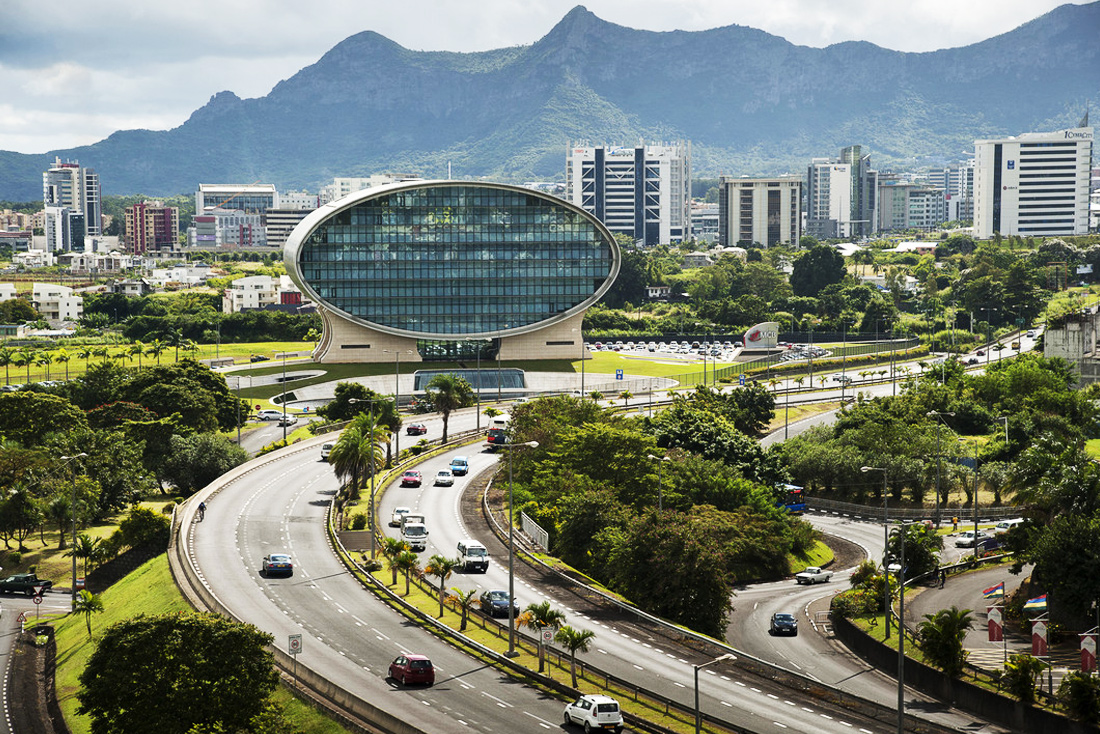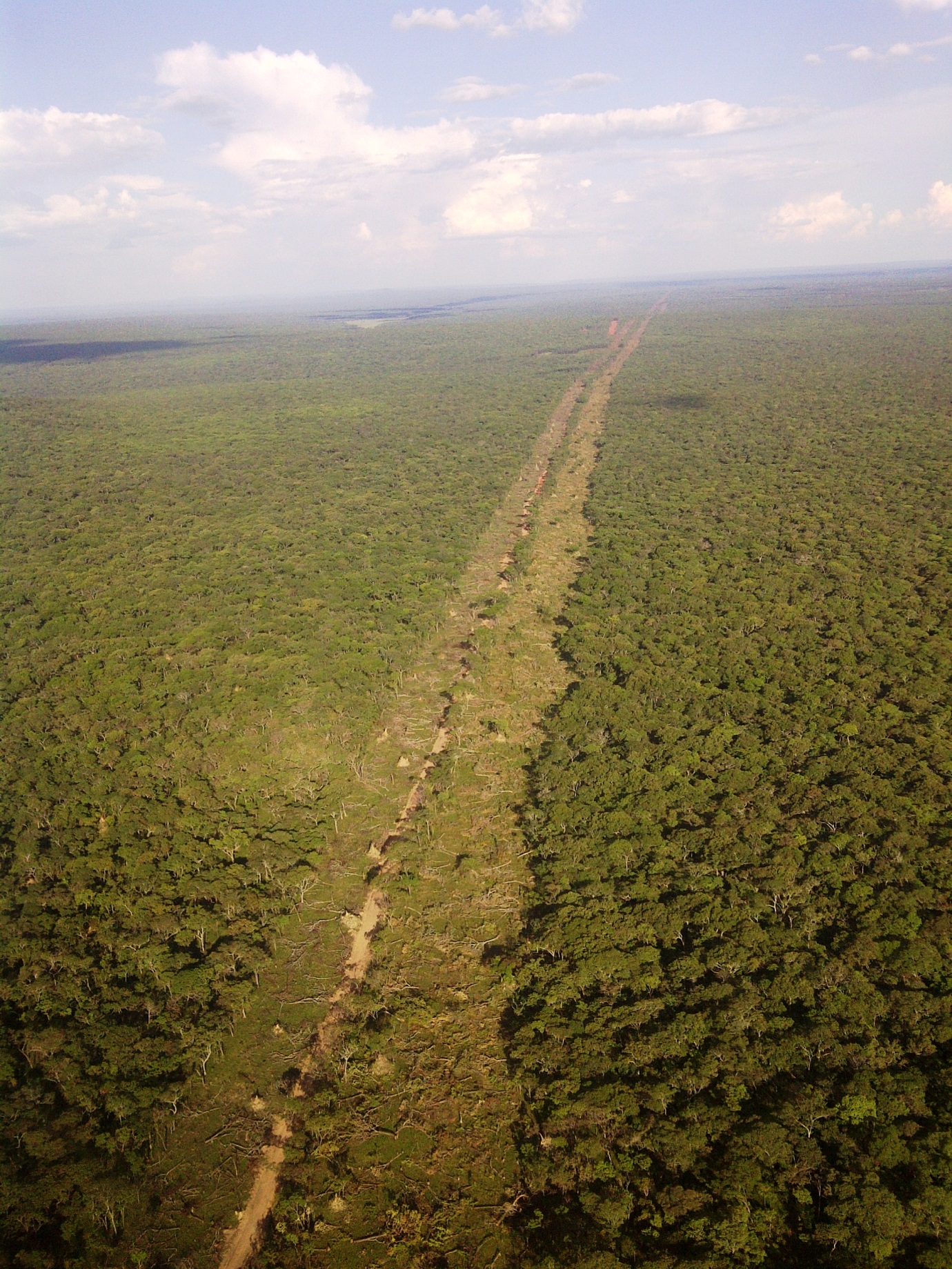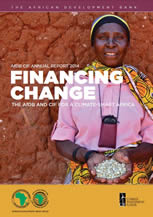Exploring Investment Vehicles And Structures In Mauritius As A Leverage And Strategy To Overcome Your Business Challenges In Africa.
March 01, 2023
By Michael Adjei
[caption id="attachment_105161" align="alignnone" width="1280"] Michael Adjei is International Business Development Executive at Órama[/caption]
According to the world Bank Group, Doing Business 2020 Fact Sheet: Sub-Saharan Africa report, Mauritius, ranked number 13 and number 1 in Africa is the highest-ranking Sub-Saharan African economy overall. It is also the only economy from this region in the top 20 cohort. The second highest ranked economy in the African region is Rwanda 38. Mauritius (13) and Rwanda (38) are the only two Sub-Saharan African economies in the top 50 on the ease of doing business ranking.
South Sudan (185), Eritrea (189), and Somalia (190) are the lowest ranked economies in the region. Other large economies in the region and their rankings are Kenya (56), South Africa (84), Ghana (118), Nigeria (131), and the Democratic Republic of Congo (183).
Sub-Saharan Africa remains one of the weakest-performing regions on the ease of doing business ranking with an average score of 51.8, well below the OECD high-income economy average of 78.4 and the global average of 63.
Although certain countries like Togo, Nigeria and Kenya made some significant strides to improve the ease of doing business through regulatory reforms, several economies in the region continue to lag thereby having adverse effects on business operations in the region.
For example, the cost to obtain a permanent electrical connection in Sub-Saharan Africa is 3 times higher than the global average and 52 times higher than in the OECD high-income group. Whilst It takes over 200 hours in Côte d'Ivoire and Cameroon to comply with export border procedures for maritime transport, compared with 13 hours in OECD high-income economies. Ports in Sub-Saharan African are the least efficient of any region.
Despite some level of progress in the reforms to ease the doing business recorded in some of these areas, protecting minority investors and trading across borders were the areas with the least number of reforms.
Doing business in Africa continues to remain a challenge to navigate despite the seamless opportunities the continent presents. Nonetheless, Africa is a continent on the rise with vast untapped resources and favourable demographics, Africa stands to be the next great force of global demand and growth. Considering the rapidly urbanising population of its youth, it is no surprise that Africa is the target for many international companies.
Africa is currently amid a structural change promising to happen for some time now, whilst recent trends show that investors’ interest has shifted from extractive activities to consumer-oriented ones, encompassing new sectors such as technology, media and telecommunications, financial services, consumer products and retail & real estate, hospitality and construction, as well as next-generation industries such as business services, clean tech, automotive, life sciences, amongst others.
The rewards promise to be substantial. The McKinsey Global Institute projects that by 2025, African household consumption and business-to-business (B2B) spending could reach $5.6 trillion. That is equivalent to nearly a third of current US gross domestic product. To get there, the continent has enormous infrastructure gaps to fill. Those gaps themselves represent huge opportunities.
Today, several factors still hinder the progress of sustainable business growth in the region, energy deficit, ease of doing business, luck of policies protecting investors, security, travel restrictions, foreign exchange control policies, unpredictable government policies, banking infrastructure, high tax rates and lending rates but to mention a few.
Very Small Enterprises (VSE’s) and Small Medium Enterprises (SME’s) represent more than 90% of businesses and employ nearly two-thirds of workers in Africa, however, very few are sustainable enough to make it through from start-ups to public offering and generate an annual revenue of $1 billion. The question then is, how does one position his business to successfully utilise a comprehensive approach to overcoming such challenges?
[caption id="attachment_105163" align="alignnone" width="1100"]
Michael Adjei is International Business Development Executive at Órama[/caption]
According to the world Bank Group, Doing Business 2020 Fact Sheet: Sub-Saharan Africa report, Mauritius, ranked number 13 and number 1 in Africa is the highest-ranking Sub-Saharan African economy overall. It is also the only economy from this region in the top 20 cohort. The second highest ranked economy in the African region is Rwanda 38. Mauritius (13) and Rwanda (38) are the only two Sub-Saharan African economies in the top 50 on the ease of doing business ranking.
South Sudan (185), Eritrea (189), and Somalia (190) are the lowest ranked economies in the region. Other large economies in the region and their rankings are Kenya (56), South Africa (84), Ghana (118), Nigeria (131), and the Democratic Republic of Congo (183).
Sub-Saharan Africa remains one of the weakest-performing regions on the ease of doing business ranking with an average score of 51.8, well below the OECD high-income economy average of 78.4 and the global average of 63.
Although certain countries like Togo, Nigeria and Kenya made some significant strides to improve the ease of doing business through regulatory reforms, several economies in the region continue to lag thereby having adverse effects on business operations in the region.
For example, the cost to obtain a permanent electrical connection in Sub-Saharan Africa is 3 times higher than the global average and 52 times higher than in the OECD high-income group. Whilst It takes over 200 hours in Côte d'Ivoire and Cameroon to comply with export border procedures for maritime transport, compared with 13 hours in OECD high-income economies. Ports in Sub-Saharan African are the least efficient of any region.
Despite some level of progress in the reforms to ease the doing business recorded in some of these areas, protecting minority investors and trading across borders were the areas with the least number of reforms.
Doing business in Africa continues to remain a challenge to navigate despite the seamless opportunities the continent presents. Nonetheless, Africa is a continent on the rise with vast untapped resources and favourable demographics, Africa stands to be the next great force of global demand and growth. Considering the rapidly urbanising population of its youth, it is no surprise that Africa is the target for many international companies.
Africa is currently amid a structural change promising to happen for some time now, whilst recent trends show that investors’ interest has shifted from extractive activities to consumer-oriented ones, encompassing new sectors such as technology, media and telecommunications, financial services, consumer products and retail & real estate, hospitality and construction, as well as next-generation industries such as business services, clean tech, automotive, life sciences, amongst others.
The rewards promise to be substantial. The McKinsey Global Institute projects that by 2025, African household consumption and business-to-business (B2B) spending could reach $5.6 trillion. That is equivalent to nearly a third of current US gross domestic product. To get there, the continent has enormous infrastructure gaps to fill. Those gaps themselves represent huge opportunities.
Today, several factors still hinder the progress of sustainable business growth in the region, energy deficit, ease of doing business, luck of policies protecting investors, security, travel restrictions, foreign exchange control policies, unpredictable government policies, banking infrastructure, high tax rates and lending rates but to mention a few.
Very Small Enterprises (VSE’s) and Small Medium Enterprises (SME’s) represent more than 90% of businesses and employ nearly two-thirds of workers in Africa, however, very few are sustainable enough to make it through from start-ups to public offering and generate an annual revenue of $1 billion. The question then is, how does one position his business to successfully utilise a comprehensive approach to overcoming such challenges?
[caption id="attachment_105163" align="alignnone" width="1100"] Mauritius has long been the jurisdiction of choice for firms wanting to expand their business into Africa.[/caption]
Apparently, the answer lies within a tiny island nation in the Indian ocean, a paradise nation in Africa called Mauritius. Mauritius has long been the jurisdiction of choice for firms wanting to expand their business into Africa. The tiny but powerful Indian ocean island nation has great political and economic stability, risk mitigating avenues, sound legal and regulatory framework, state-of-the-art infrastructure, a highly skilled and bilingual workforce (English and French) and a well-developed banking sector. It is no surprise why Mauritius ranks 1st in Africa in the World Bank’s Doing Business Ranking report.
Mauritius also offers a compliant and reliable platform for doing business, notably acclaimed for its business-friendly and investment-friendly jurisdiction, with sound legal and regulatory frameworks, a transparent and internationally-compliant jurisdiction.
To complement its business-friendly position, the country has long-standing relationships with key African and international bodies, including the Southern African Development Community (SADC) and the Common Market for Eastern and Southern Africa (COMESA), the World Trade Organisation and the Commonwealth of Nations. It has also established a network of agreements, comprising 23 signed Investment Promotion and Protection Agreement (IPPAs) and 46 Double Taxation Avoidance Agreements (DTAAs) with African and international states, which means that global investors, traders and private equity companies gain preferential access to a number of key African markets and hundreds of millions of customers. It comes as no surprise why the Mo Ibrahim Index of African Governance has consecutively rated Mauritius as the top ranking country in overall governance in Africa.
Mauritius is is also a fully collaborative and responsible international financial centre that has taken significant steps to adhere to international best practices. To enhance its transparency and collaboration framework, Mauritius signed the OECD Multilateral Convention on Mutual Administrative Assistance in Tax Matters in June 2015. Mauritius is also a member of the Early Adopters Group committed to the early implementation of the Common Reporting Standard (CRS) on the automatic exchange of financial account information.
The OECD Global Forum has rated Mauritius as a “Largely Compliant” jurisdiction – a rating which equals that obtained by developed economies such as the US, the UK and Germany. It was the first African country to sign up to an Intergovernmental Agreement with the US for the implementation of the Foreign Accounts Tax Compliance Act (FATCA) and has joined the OECD’s Inclusive Framework to implement the Base Erosion and Profit Shifting (BEPS) recommendations and the new initiative on exchange of beneficial ownership information.
In the next article, we will discuss in detail some of the investment vehicles and structures as well as their benefits to leveraging your business opportunities when using Mauritius as the springboard to spread across Africa.
* Michael Adjei is International Business Development Executive at Órama . The article is the first in a three part series
Mauritius has long been the jurisdiction of choice for firms wanting to expand their business into Africa.[/caption]
Apparently, the answer lies within a tiny island nation in the Indian ocean, a paradise nation in Africa called Mauritius. Mauritius has long been the jurisdiction of choice for firms wanting to expand their business into Africa. The tiny but powerful Indian ocean island nation has great political and economic stability, risk mitigating avenues, sound legal and regulatory framework, state-of-the-art infrastructure, a highly skilled and bilingual workforce (English and French) and a well-developed banking sector. It is no surprise why Mauritius ranks 1st in Africa in the World Bank’s Doing Business Ranking report.
Mauritius also offers a compliant and reliable platform for doing business, notably acclaimed for its business-friendly and investment-friendly jurisdiction, with sound legal and regulatory frameworks, a transparent and internationally-compliant jurisdiction.
To complement its business-friendly position, the country has long-standing relationships with key African and international bodies, including the Southern African Development Community (SADC) and the Common Market for Eastern and Southern Africa (COMESA), the World Trade Organisation and the Commonwealth of Nations. It has also established a network of agreements, comprising 23 signed Investment Promotion and Protection Agreement (IPPAs) and 46 Double Taxation Avoidance Agreements (DTAAs) with African and international states, which means that global investors, traders and private equity companies gain preferential access to a number of key African markets and hundreds of millions of customers. It comes as no surprise why the Mo Ibrahim Index of African Governance has consecutively rated Mauritius as the top ranking country in overall governance in Africa.
Mauritius is is also a fully collaborative and responsible international financial centre that has taken significant steps to adhere to international best practices. To enhance its transparency and collaboration framework, Mauritius signed the OECD Multilateral Convention on Mutual Administrative Assistance in Tax Matters in June 2015. Mauritius is also a member of the Early Adopters Group committed to the early implementation of the Common Reporting Standard (CRS) on the automatic exchange of financial account information.
The OECD Global Forum has rated Mauritius as a “Largely Compliant” jurisdiction – a rating which equals that obtained by developed economies such as the US, the UK and Germany. It was the first African country to sign up to an Intergovernmental Agreement with the US for the implementation of the Foreign Accounts Tax Compliance Act (FATCA) and has joined the OECD’s Inclusive Framework to implement the Base Erosion and Profit Shifting (BEPS) recommendations and the new initiative on exchange of beneficial ownership information.
In the next article, we will discuss in detail some of the investment vehicles and structures as well as their benefits to leveraging your business opportunities when using Mauritius as the springboard to spread across Africa.
* Michael Adjei is International Business Development Executive at Órama . The article is the first in a three part series






 Michael Adjei is International Business Development Executive at Órama[/caption]
According to the world Bank Group, Doing Business 2020 Fact Sheet: Sub-Saharan Africa report, Mauritius, ranked number 13 and number 1 in Africa is the highest-ranking Sub-Saharan African economy overall. It is also the only economy from this region in the top 20 cohort. The second highest ranked economy in the African region is Rwanda 38. Mauritius (13) and Rwanda (38) are the only two Sub-Saharan African economies in the top 50 on the ease of doing business ranking.
South Sudan (185), Eritrea (189), and Somalia (190) are the lowest ranked economies in the region. Other large economies in the region and their rankings are Kenya (56), South Africa (84), Ghana (118), Nigeria (131), and the Democratic Republic of Congo (183).
Sub-Saharan Africa remains one of the weakest-performing regions on the ease of doing business ranking with an average score of 51.8, well below the OECD high-income economy average of 78.4 and the global average of 63.
Although certain countries like Togo, Nigeria and Kenya made some significant strides to improve the ease of doing business through regulatory reforms, several economies in the region continue to lag thereby having adverse effects on business operations in the region.
For example, the cost to obtain a permanent electrical connection in Sub-Saharan Africa is 3 times higher than the global average and 52 times higher than in the OECD high-income group. Whilst It takes over 200 hours in Côte d'Ivoire and Cameroon to comply with export border procedures for maritime transport, compared with 13 hours in OECD high-income economies. Ports in Sub-Saharan African are the least efficient of any region.
Despite some level of progress in the reforms to ease the doing business recorded in some of these areas, protecting minority investors and trading across borders were the areas with the least number of reforms.
Doing business in
Michael Adjei is International Business Development Executive at Órama[/caption]
According to the world Bank Group, Doing Business 2020 Fact Sheet: Sub-Saharan Africa report, Mauritius, ranked number 13 and number 1 in Africa is the highest-ranking Sub-Saharan African economy overall. It is also the only economy from this region in the top 20 cohort. The second highest ranked economy in the African region is Rwanda 38. Mauritius (13) and Rwanda (38) are the only two Sub-Saharan African economies in the top 50 on the ease of doing business ranking.
South Sudan (185), Eritrea (189), and Somalia (190) are the lowest ranked economies in the region. Other large economies in the region and their rankings are Kenya (56), South Africa (84), Ghana (118), Nigeria (131), and the Democratic Republic of Congo (183).
Sub-Saharan Africa remains one of the weakest-performing regions on the ease of doing business ranking with an average score of 51.8, well below the OECD high-income economy average of 78.4 and the global average of 63.
Although certain countries like Togo, Nigeria and Kenya made some significant strides to improve the ease of doing business through regulatory reforms, several economies in the region continue to lag thereby having adverse effects on business operations in the region.
For example, the cost to obtain a permanent electrical connection in Sub-Saharan Africa is 3 times higher than the global average and 52 times higher than in the OECD high-income group. Whilst It takes over 200 hours in Côte d'Ivoire and Cameroon to comply with export border procedures for maritime transport, compared with 13 hours in OECD high-income economies. Ports in Sub-Saharan African are the least efficient of any region.
Despite some level of progress in the reforms to ease the doing business recorded in some of these areas, protecting minority investors and trading across borders were the areas with the least number of reforms.
Doing business in  Mauritius has long been the jurisdiction of choice for firms wanting to expand their business into Africa.[/caption]
Apparently, the answer lies within a tiny island nation in the Indian ocean, a paradise nation in Africa called Mauritius. Mauritius has long been the jurisdiction of choice for firms wanting to expand their business into Africa. The tiny but powerful Indian ocean island nation has great political and economic stability, risk mitigating avenues, sound legal and regulatory framework, state-of-the-art infrastructure, a highly skilled and bilingual workforce (English and French) and a well-developed banking sector. It is no surprise why
Mauritius has long been the jurisdiction of choice for firms wanting to expand their business into Africa.[/caption]
Apparently, the answer lies within a tiny island nation in the Indian ocean, a paradise nation in Africa called Mauritius. Mauritius has long been the jurisdiction of choice for firms wanting to expand their business into Africa. The tiny but powerful Indian ocean island nation has great political and economic stability, risk mitigating avenues, sound legal and regulatory framework, state-of-the-art infrastructure, a highly skilled and bilingual workforce (English and French) and a well-developed banking sector. It is no surprise why 

























